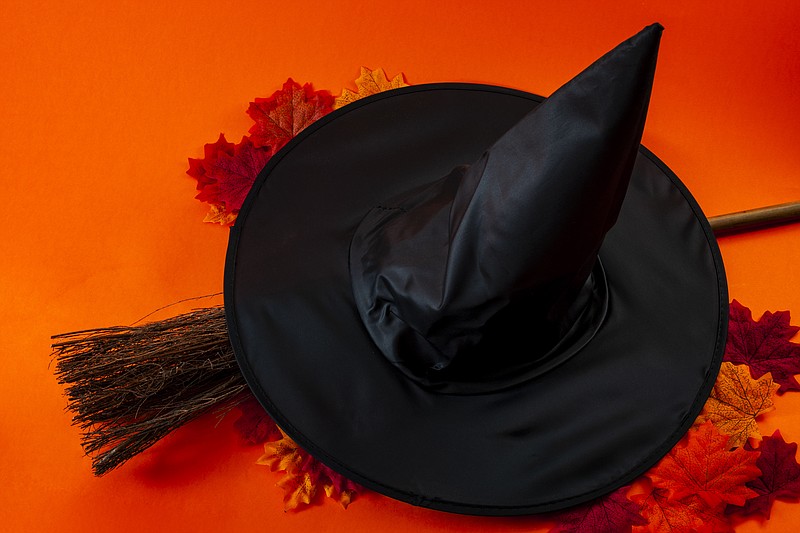Editor's note: This article is part of a series answering religious questions. Each week, we will answer one submitted faith question. This week's question was not submitted but was a timely divergence. To send a submission, visit timesfreepress.com/religionquestions or email wmassey@timesfreepress.com.
Question: What is the history of Halloween and Christianity?
The people of what is now Ireland, Scotland and Wales have celebrated the Celtic holiday of Samhain for centuries and had been celebrating it for centuries when Christianity moved into the region in the 5th century.
Samhain is a seasonal festival marking the end of the harvest and the start of winter, as well as the new year, said Regina Hansen, Boston University master lecturer on topics of the supernatural. The holiday - celebrated from Oct. 31 to Nov. 1 - was a time when people believed the veil between the human world and the spiritual world was lifted. People made food offerings to appease the spirits and bonfires were lit, Hansen said.
When Christian missionaries came into Ireland, Scotland or Wales in the 5th century, they recognized the cultural value of Samhain and began a process of baptizing the celebration to make it more Christian, rather than denouncing local traditions and risk losing audiences, Hansen said.
"One of the ways of baptizing the culture, making Christianity be more palatable to the existing indigenous culture, was to celebrate our holidays at the same time," she said.
All Saints' Day, or All Hallows' Day, was an exciting church holiday to celebrate the church's saints who do not have days of their own. Pope Gregory III, who held the papacy in the 8th century, moved All Saints' Day from the spring to Nov. 1. The church also moved All Souls' Day to Nov. 2 as a day to pray for souls in purgatory.
The alignment of the Christian holiday honoring the dead and the Samhain festival allowed Christians to adopt many of the Celtic traditions, such as dressing up like the dead, asking for treats and lighting candles, Hansen said. The acts are not unlike other religious ceremonies that remind the faithful of important religious ideas, in this case death and honoring the dead, she said.
Christianity did not change its core principles in adopting the Samhain holiday, said Benjamin Hudson, Penn State professor of history and Medieval studies. What Christians had to do was change their vocabulary, he said.
"There was no doctrinal shift," Hudson said. "There was a communications shift. Because Christianity is very culturally based around the Mediterranean, a lot of things, a lot of ideas that were current there were completely unknown further north. So, in order to make it intelligible, the early missionaries, not unnaturally, gravitated to things their audience would understand, and many of those things were connected with the agricultural year."
As the Christian message took hold in northern Europe, the missionaries used the Celtic traditions as more of a cultural marker than a reference to a pagan holiday, Hudson said. For example, people could continue the tradition of putting out saucers of milk to feed hungry ghosts because they were Welsh, not because they were pagan.
Pushback against the holiday began after the Christian reformation in the 16th century, a period when some Christians looked to the Bible as the source of all traditions and practices, Hansen said. Early on, suspicion of Halloween was about a fear of idolatry. Today, some Christians denounce Halloween because of its normalizing of demons, witches and satanism.
However, despite criticism from some Christian circles, Halloween is increasingly popular in the United States. According to the National Retail Federation, Americans will spend nearly $9 billion this year, among the highest in the 15-year history of the federation's analysis.
From the reporter
I became a journalist to help people see people as people. But highlighting the human side of every policy decision, and how it is affecting your community, takes time as well as support from readers. If you believe in telling the stories of people in your community, please subscribe to the Times Free Press today. Contact me at wmassey@timesfreepress.com or 423-757-6249. Find me on Twitter at @News4Mass.
